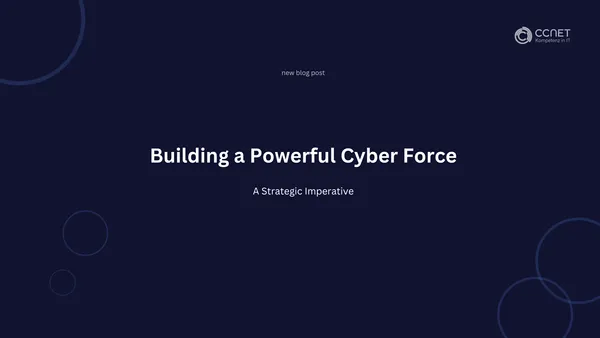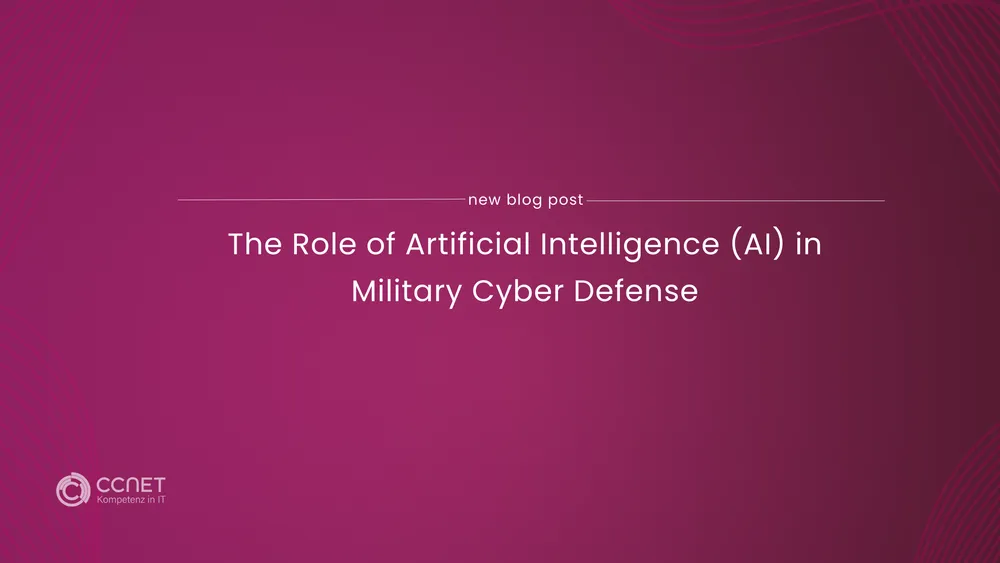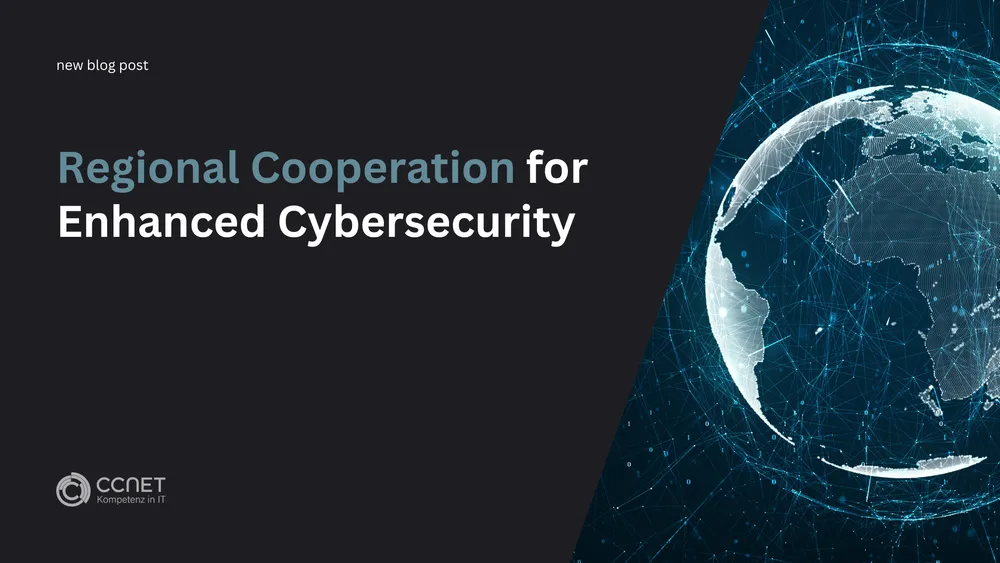
CCNet
Feb 10, 2025 • 3 min read

Building a Capable Cyber Force: A Strategic Imperative
Given the increasing complexity and sophistication of cyber threats, establishing specialized cyber units within military organizations is of strategic importance. These cyber units form the backbone of military cyber defense and play a central role in national security strategies. This blog post explores the key elements to consider when building a highly capable cyber force and highlights its strategic significance in protecting nations against cyber threats.
The Fundamentals of Cyber Force Development
The development of a cyber force begins with defining its mission and specific tasks within the framework of the national security strategy. This force must be capable of fulfilling a variety of tasks, from defending critical infrastructure to conducting offensive cyber operations. These tasks require specialized skills that go far beyond conventional IT knowledge.
A crucial first step in building a cyber force is the careful planning of its development. This process includes all relevant aspects, including political, organizational, technical, logistical, administrative, and legal factors. Mistakes made during this early planning phase can have serious and difficult-to-correct impacts on the long-term effectiveness of the force. Therefore, planning should also incorporate lessons learned from other countries and be adapted to national conditions.
Organizational and Operational Capabilities
A successful cyber force requires not only well-trained personnel but also a clear organizational structure and robust operational capabilities. The organization must be flexible enough to adapt to the rapidly changing threat landscape, but also strong enough to ensure effective command and decision-making. To maximize efficiency and effectiveness, the cyber force should fall under a single command.
Clear delineation of responsibilities within the cyber force is also crucial. It must be clearly defined which units are responsible for defending their own networks and which are tasked with offensive cyber operations. This structure ensures that each unit can focus on its specific tasks without jeopardizing the overall strategy.
In addition to structural organization, the ability to respond quickly and in a coordinated manner to cyberattacks is critical. The cyber force must be capable of detecting threats in real time and taking appropriate action to minimize damage. This requires advanced technologies for monitoring and analyzing network activities as well as a high level of situational awareness.
The Strategic Importance of Cyber Forces
Cyber forces play a crucial role in national security strategy. They are often the first and last line of defense against cyberattacks, which can threaten not only military but also civilian infrastructures. The ability to respond rapidly to cyber threats and neutralize them can determine the outcome of military conflicts and ensure the security of an entire nation.
Moreover, well-trained and organized cyber forces offer strategic advantages in offensive cyber operations. By integrating cyber operations into traditional military campaigns, the efficiency and effectiveness of military missions can be significantly enhanced. Targeted cyberattacks can disable critical infrastructure, disrupt communication networks, and gather vital intelligence that is crucial for the success of a mission.
Challenges and Outlook
Building a capable cyber force is not without its challenges. One of the greatest bottlenecks is the shortage of qualified personnel. The demand for cyber experts far exceeds the supply, making it difficult to recruit enough skilled professionals. Furthermore, the continuous evolution of technologies and threats requires ongoing training and adaptation of the cyber force’s skills.
Another important aspect is the integration of cyber forces into the overall national security strategy. Cyber operations must be closely coordinated with other military and security measures to achieve their full impact.
Conclusion
The establishment and development of a capable cyber force are imperative and essential components of a modern national security strategy. These forces play a pivotal role in protecting states from the growing cyber threats while also offering strategic advantages in offensive cyber operations. Despite the challenges associated with their development, the importance of cyber forces for a nation's security remains undisputed. Military organizations must continue to invest in the training, organization, and operational capabilities of their cyber forces to meet the growing challenges in cyberspace.


